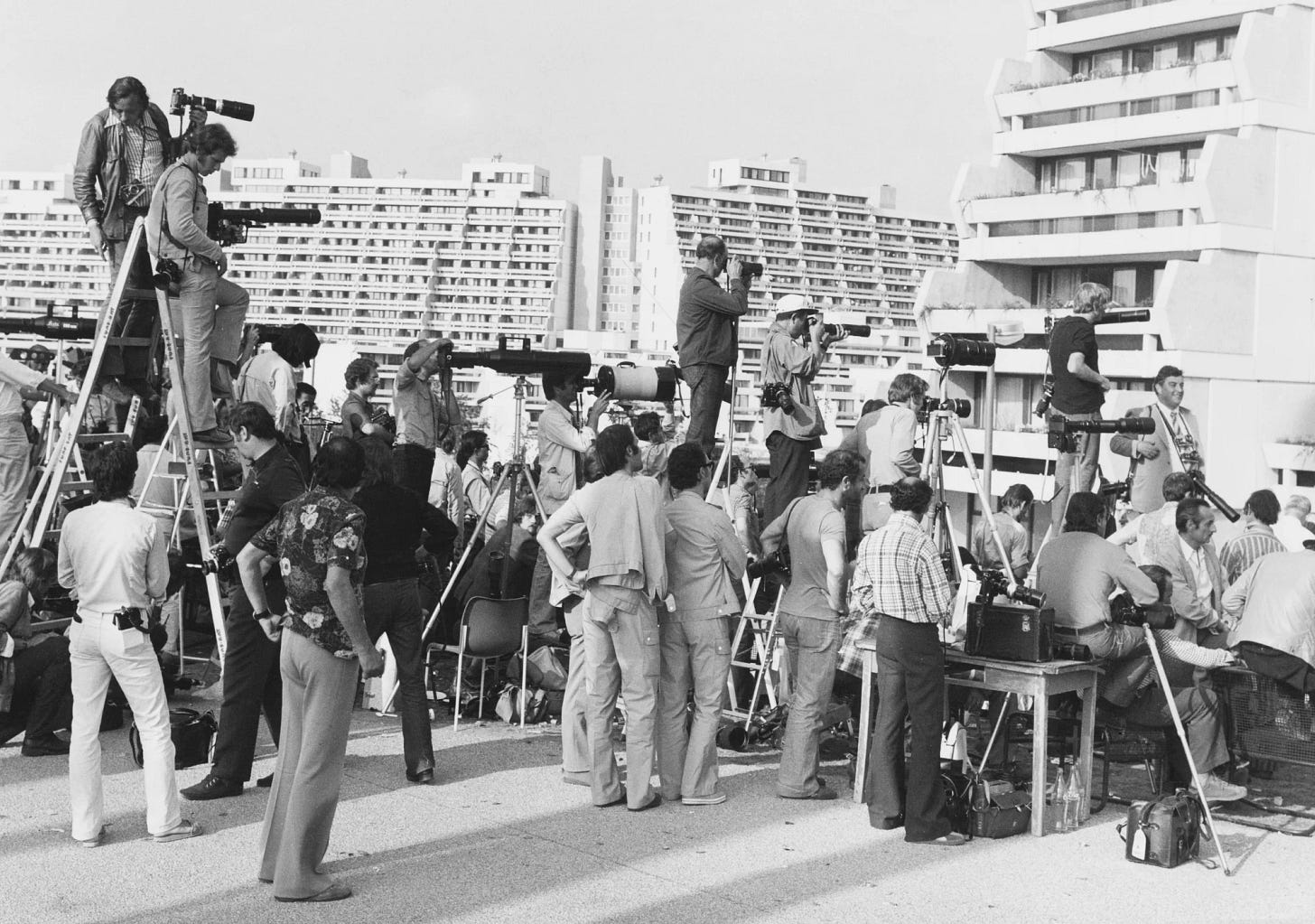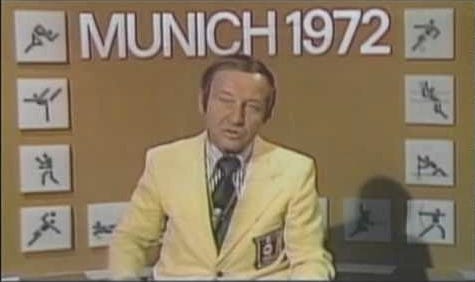Since the day it was perpetrated, the October 7 Hamas attack has been compared to the Egyptian/Syrian attack that sparked the Yom Kippur War. But there is another comparison to “Black Sabbath” (as October 7, 2023 has come to be known) that is worth considering: the Munich Massacre, carried out by the PLO-affiliated “Black September” organization at the Summer Olympic Games in September 1972.
When the Munich Massacre occurred, I was one month shy of my seventh birthday—the age at which sociological research suggests children become aware of political events taking place around them. Now, fifty years later, that moment of political awakening has become a reference point. Like October 7, the Munich attack involved murder, kidnapping, sexual violence, and the demand for the release of Palestinian prisoners. Like October 7, it thrust the Palestinian cause onto the world stage. With its atrocities aired live on TV, like those of October 7 spread in real time on social media, it made terrorism painfully public.

As a kid, I would often tune into ABC’s Wide World of Sports on Saturday afternoons to catch some of the show’s obscure but seriously reported events—demolition derby, jai-alai, Mexican cliff diving. I can still hear the melodramatic opening theme, and Jim McKay narrating, “The thrill of victory, and the agony of defeat!” over the two film clips that illustrated that indelible phrase: a triumphant George Foreman, and that poor Slovenian ski jumper hurtling out of control off the end of the ramp, which I dared myself to watch without flinching each week.
But it was a school night, not a Saturday afternoon, when I thought I heard Jim McKay’s voice coming from the kitchen. Thinking there might be a medals update on Mark Spitz or Olga Korbut, I made my way downstairs. My father, who dozed through most evening television programs, was glued to the mini-TV on the Formica counter. I snuck in behind him.
Jim McKay was reporting live from Munich. I didn’t understand what he was saying, and I didn’t dare ask my Dad to explain. (In those days, we kids implicitly understood that news was for adults.) But I grasped that something that shouldn’t be happening was happening, and somehow, Israel was involved. I could tell Mr. McKay was sad, very sad. I could see he was struggling to find words to describe his feelings. I watched his eyes, then my Dad’s, well up with tears. It was the first time I had ever seen my father cry.
Years later, I would learn that McKay covered the Munich Massacre live on ABC News for 12 hours straight—from the initial news that Palestinian terrorists had kidnapped 11 Israeli athletes in their Olympic Village dorm, throughout the night, until a commando raid to free them went abysmally wrong, and an explosion at the Munich airport took all of their lives.
It would take me many more years to understand how devastating the incident was for my German-Jewish, Holocaust survivor father. At the previous German Olympics (Berlin, 1936), antisemitism had been conveyed stealthily, through propoganda. This time, it was flagrant. The Black September kidnappers brazenly showed the world that Jews were still vulnerable, despite the fact that they now had their own, defensible state.
McKay described the Munich Massacre as “the loss of whatever innocence there was in the world.” In the years since, the proliferation of international terrorist incidents has pushed the reclamation of that innocence further and further out of reach. October 7 may have buried it completely.
As if the humiliation, grief, and mishandling of the hostage crisis by German authorities had not been enough, Israel was criticized for its response to the attack in the years that followed. Just one month after the Olympics, West Germany complied with the demands of Black September sympathizers who hijacked a Lufthansa flight, and freed the massacre’s three surviving perpetrators. Libya gave them a hero’s welcome. Israel set out on a mission to assassinate those involved in the attack’s planning, for which it was accused of being motivated by vengeance.
Aharon Yariv, director of the operation, responded to the accusation:
“We had no choice. We had to make them stop, and there was no other way... We were not very proud of it. But it was a question of sheer necessity… Was it morally acceptable? One can debate that question. Was it politically vital? It was.”
When this war draws to an end, it will not bring “the thrill of victory” or “the agony of defeat.” It, too, will have been “a question of sheer necessity.” Our survival as a country and a people depends on it. The possibility of a Palestinian state depends on it. Any future peace is impossible without it.





The historical context is ... saddening... interesting.. enlarging. As to Mr. McCays' comment ,“the loss of whatever innocence there was in the world,".... how awfully far the world has degraded since then. But, we must believe that truth and light will prevail.
Am Yisrael Chai. Once again Israel has to do what is necessary without much support from the rest of the world. But in a sense that’s what makes it so vitally important for Jews everywhere that Israel do what it has to to ensure its survival. 🇮🇱🇮🇱🇮🇱